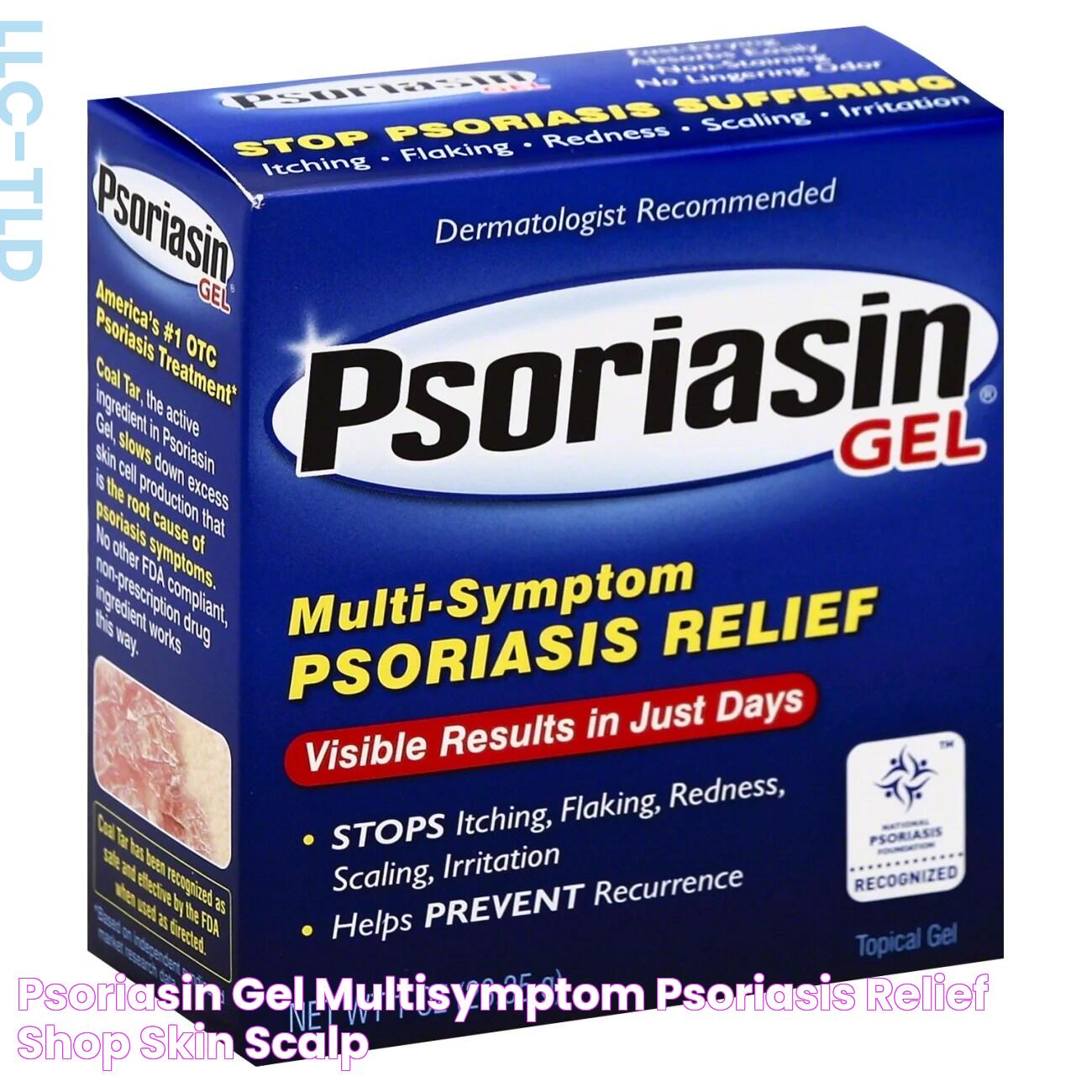Psoriasis, a chronic skin condition characterized by itchy, red, and scaly patches, can be particularly challenging when it affects the scalp. The scalp is a common site for psoriasis outbreaks, causing discomfort, embarrassment, and even hair loss. Fortunately, there are several treatment options available to manage psoriasis on the scalp, ranging from topical medications to advanced therapies. Understanding the various approaches to treatment can significantly improve the quality of life for those affected.
With the right treatment for psoriasis on the scalp, individuals can find relief from the persistent itchiness and irritation that comes with this condition. The key is to tailor the treatment plan to the specific needs of the individual, considering factors such as the severity of the psoriasis, response to previous treatments, and overall health. By exploring the available options, patients can take control of their condition and reduce the impact it has on their daily lives.
This comprehensive guide will delve into the numerous treatment strategies for scalp psoriasis, providing insights into their effectiveness, potential side effects, and recommendations for use. Whether you're newly diagnosed or have been managing psoriasis for years, this article aims to equip you with the knowledge necessary to make informed decisions about your treatment plan. Let's explore the world of scalp psoriasis treatments and uncover the path to healthier skin.
Read also:Serovital Advanced A Comprehensive Guide To Youthful Living
Table of Contents
- Understanding Psoriasis
- What Causes Scalp Psoriasis?
- Symptoms of Scalp Psoriasis
- How Does Scalp Psoriasis Differ from Other Types?
- Diagnosing Scalp Psoriasis
- Topical Treatments
- Phototherapy
- Oral Medications
- Biologics
- Natural Remedies and Lifestyle Changes
- How to Prevent Scalp Psoriasis Flare-Ups?
- Managing the Emotional Impact of Psoriasis
- Choosing the Right Treatment Plan
- Frequently Asked Questions
- Conclusion
Understanding Psoriasis
Psoriasis is an autoimmune disorder that affects the skin, causing it to regenerate at an accelerated rate. This rapid skin cell turnover results in the buildup of excess skin cells, forming thick, scaly patches. While psoriasis can manifest in various forms and affect different parts of the body, it is most commonly found on the elbows, knees, and scalp. It is important to understand that psoriasis is not contagious, and its exact cause remains unknown, though genetics and immune system dysfunction play significant roles.
What Causes Scalp Psoriasis?
The exact cause of scalp psoriasis remains unclear, but it is believed to result from a combination of genetic, environmental, and immune system factors. In individuals with a genetic predisposition, certain triggers can activate the immune system, causing an overproduction of skin cells. Common triggers include:
- Stress
- Infections
- Skin injuries
- Medications
- Weather changes
- Alcohol consumption
Symptoms of Scalp Psoriasis
Scalp psoriasis presents with a range of symptoms that may vary in severity. Common symptoms include:
- Red patches of skin covered with silvery scales
- Itching and burning sensation
- Dry scalp that may crack and bleed
- Temporary hair loss due to scratching
- Thickened skin plaques
How Does Scalp Psoriasis Differ from Other Types?
While scalp psoriasis shares similarities with other forms of psoriasis, it has distinct characteristics that require specific management strategies. The presence of hair can complicate the application of treatments and may necessitate specialized shampoos and topical solutions. Additionally, the scalp's unique environment can influence the effectiveness of certain therapies, making it crucial to tailor treatment plans accordingly.
Diagnosing Scalp Psoriasis
Diagnosing scalp psoriasis typically involves a physical examination by a dermatologist. In some cases, a skin biopsy may be performed to rule out other conditions with similar symptoms, such as seborrheic dermatitis. Accurate diagnosis is essential for developing an effective treatment plan, as the approach may differ based on the severity and type of psoriasis present.
Topical Treatments
Topical treatments are often the first line of defense against scalp psoriasis. These medications are applied directly to the affected areas and work by reducing inflammation, slowing skin cell growth, and relieving itching. Common topical treatments include:
Read also:Mastering The Art Of Half Up Half Down Curly Hairstyles Your Ultimate Guide
- Corticosteroids: Anti-inflammatory agents that help reduce redness and swelling.
- Vitamin D analogues: Help slow skin cell growth and remove scales.
- Coal tar: Reduces scaling, itching, and inflammation.
- Salicylic acid: Helps remove scales and soften the skin.
Phototherapy
Phototherapy, or light therapy, involves exposing the skin to ultraviolet light under medical supervision. This treatment can be effective for moderate to severe scalp psoriasis, as it helps slow skin cell turnover and reduce inflammation. Phototherapy options include:
- UVB light therapy
- PUVA therapy (combination of psoralen and UVA light)
Oral Medications
For individuals with severe scalp psoriasis that does not respond to topical treatments or phototherapy, oral medications may be prescribed. These medications work systemically to suppress the immune system and reduce inflammation. Common oral medications include:
- Acitretin
- Cyclosporine
- Methotrexate
Biologics
Biologic drugs are a newer class of medications that target specific parts of the immune system involved in the development of psoriasis. They are typically used for moderate to severe cases and are administered via injection or infusion. Common biologics include:
- Adalimumab
- Etanercept
- Infliximab
Natural Remedies and Lifestyle Changes
In addition to conventional treatments, natural remedies and lifestyle changes can play a supportive role in managing scalp psoriasis. While not a substitute for medical treatment, these approaches may help alleviate symptoms and improve overall well-being. Consider incorporating the following:
- Aloe vera gel for soothing inflamed skin
- Oatmeal baths to reduce itching and irritation
- Diet modifications to include anti-inflammatory foods
- Stress management techniques such as meditation and yoga
How to Prevent Scalp Psoriasis Flare-Ups?
Preventing flare-ups is a crucial aspect of managing scalp psoriasis. By identifying and avoiding triggers, individuals can reduce the frequency and severity of outbreaks. Strategies for prevention include:
- Maintaining a consistent skincare routine
- Using gentle, psoriasis-friendly shampoos
- Avoiding harsh styling products and heat treatments
- Managing stress through relaxation techniques
- Protecting the scalp from extreme weather conditions
Managing the Emotional Impact of Psoriasis
Living with scalp psoriasis can take a toll on mental health, leading to feelings of embarrassment, frustration, and social isolation. It is important to address the emotional aspects of the condition by seeking support from friends, family, or mental health professionals. Joining support groups or online communities can also provide valuable connections and coping strategies.
Choosing the Right Treatment Plan
Selecting the most appropriate treatment for psoriasis on the scalp requires careful consideration of individual factors, including the severity of symptoms, response to previous treatments, and personal preferences. Collaboration with a healthcare provider is essential to develop a personalized treatment plan that optimizes outcomes and minimizes side effects.
Frequently Asked Questions
What is the best shampoo for scalp psoriasis?
Shampoos containing coal tar, salicylic acid, or ketoconazole are often recommended for managing scalp psoriasis. These ingredients help reduce scaling and soothe the scalp.
Can diet affect scalp psoriasis?
While no specific diet can cure psoriasis, certain dietary changes may help reduce inflammation and improve symptoms. Eating a balanced diet rich in fruits, vegetables, and omega-3 fatty acids is generally beneficial.
Is scalp psoriasis contagious?
No, scalp psoriasis is not contagious. It is an autoimmune condition that results from an overactive immune system, not an infection.
Can scalp psoriasis lead to hair loss?
Scalp psoriasis itself does not cause permanent hair loss. However, excessive scratching and harsh treatments can lead to temporary hair loss.
How long does it take to see improvement with treatment?
Response to treatment can vary, but patients may start to see improvement within a few weeks of consistent use. It is important to follow the prescribed treatment plan and consult a healthcare provider if there are no noticeable improvements.
Are there any home remedies for scalp psoriasis?
Home remedies such as apple cider vinegar rinses, coconut oil treatments, and aloe vera applications may provide temporary relief, but they should be used in conjunction with medical treatments.
Conclusion
Psoriasis on the scalp can be a challenging condition to manage, but with the right treatment approach, individuals can achieve significant relief from symptoms. By understanding the available treatment options and working closely with healthcare professionals, patients can develop personalized plans that address their unique needs. Whether through topical treatments, systemic medications, or lifestyle changes, the journey to healthier skin is achievable with persistence and informed decision-making.

